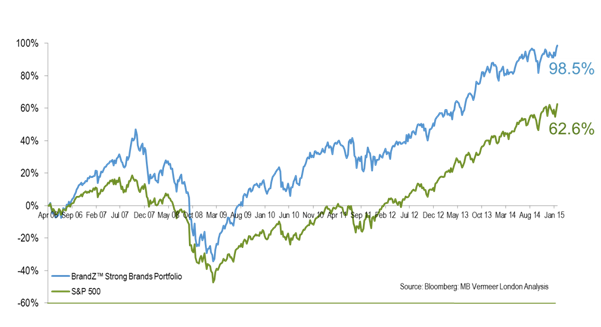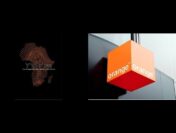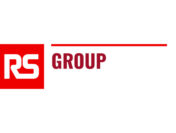Today is a new age of consumerism; increased globalization, new technologies and disrupted category norms have empowered people to be more informed, connected and united than ever before. Consumers are demanding accountability and transparency from the companies they work with and forcing brand leaders around the world to answer fundamental questions: what business are we in? Why do we exist? And how do we organize to win?
Millward Brown Vermeer recently published the findings of the most global marketing leadership study ever initiated, Marketing2020, in Harvard Business review. The study that focused on identifying what it takes to win with brands in the times ahead. Amid increasingly blasé attitudes towards historically successful marketing techniques, the study of over-performing brands found that leading brands go beyond the functional product benefits and deliver on a higher order reason for being. Purpose-led brands do exactly that. That’s why purpose-led brands repeatedly rank among the highest valued growth brands in the world. By transcending the functional product benefits, purpose-led brands cultivate a truly competitive advantage for unparalleled growth and success.
Jim Stengel, the former Global Marketing Officer of P&G, provides evidence for this in his book, Grow: How Ideals Power Growth and Profit at the World’s Greatest Companies. With the help of Millward Brown Vermeer, Stengel identified the top 50 brands globally that ranked highest on both consumer bonding and value creation over the past decade. Together, Stengel and Millward Brown Vermeer discovered that the best businesses are fuelled by ideal-driven brand growth. Whether public, private, B2C, B2B, well established or up and coming, every brand in the Stengel 50 leads with purpose.
BRANDZ STRONG BRANDS PORTFOLIO VS. S&P 500
April 2006 – January 2015
So, what exactly does leading with a purpose mean? Purpose-led brands are defined not by a particular product or service, but by an Ideal: a higher-order reason for being that articulates “why” the brand exists and the impact it seeks to make in the world. By communicating on the “why”, as opposed to the “what” or “how”, purpose-led brands inspire consumers to follow it along its journey. In this way, purpose-led brands are able to generate mass appeal globally, form sustainable relationships with consumers and offer a truly competitive advantage over two-dimensional competitors.
 One prime example of this is Dove. Since the launch of its 2004 ‘Campaign for Real Beauty’ (CFRB), Dove has stood for the empowerment of female beauty. Today, a Dove product does not just serve as a hygienic staple – it stands for the belief that women everywhere should feel comfortable and confident in their own skin. Immediately following the campaign launch, consumers worldwide rallied around the cause. Dove’s parent company, Unilever, estimated that the media exposure generated from the first campaign was worth over 30 times the paid-for media space. Dove sales skyrocketed. From 2004 to 2013, Unilever experienced 86 percent revenue growth in its personal care sector to reach a total of EU 17.9B. In 2014, the Dove brand alone was valued at USD4.8B and ranked 8th among the world’s top personal care brands as measured by BrandZ Most Valuable Global Brands 2014.
One prime example of this is Dove. Since the launch of its 2004 ‘Campaign for Real Beauty’ (CFRB), Dove has stood for the empowerment of female beauty. Today, a Dove product does not just serve as a hygienic staple – it stands for the belief that women everywhere should feel comfortable and confident in their own skin. Immediately following the campaign launch, consumers worldwide rallied around the cause. Dove’s parent company, Unilever, estimated that the media exposure generated from the first campaign was worth over 30 times the paid-for media space. Dove sales skyrocketed. From 2004 to 2013, Unilever experienced 86 percent revenue growth in its personal care sector to reach a total of EU 17.9B. In 2014, the Dove brand alone was valued at USD4.8B and ranked 8th among the world’s top personal care brands as measured by BrandZ Most Valuable Global Brands 2014.
 Dulux is another example of a company that has witnessed tremendous financial success since it repositioned its brand to be purpose-led. In 2008, Dulux defined its purpose as adding colour to people’s lives.This translated into the ‘Let’s Colour the World’ program, committed to making a positive difference in people’s lives by adding colour to rundown neighbourhoods across the globe. Scores of consumers were inspired by Dulux’s purpose and decided to join the movement, sparking worldwide media coverage and significant brand growth. From 2009-2011, Dulux’s revenues increased by 50 percent from EU 632M to EU 951M.
Dulux is another example of a company that has witnessed tremendous financial success since it repositioned its brand to be purpose-led. In 2008, Dulux defined its purpose as adding colour to people’s lives.This translated into the ‘Let’s Colour the World’ program, committed to making a positive difference in people’s lives by adding colour to rundown neighbourhoods across the globe. Scores of consumers were inspired by Dulux’s purpose and decided to join the movement, sparking worldwide media coverage and significant brand growth. From 2009-2011, Dulux’s revenues increased by 50 percent from EU 632M to EU 951M.
 Yet another example of a brand that has seen its profits soar after the launch of its purpose-driven campaign is Johnnie Walker, a brand of scotch whiskey owned by Diageo. The profoundly simple ‘Keep Walking’ campaign was hugely successful because it delivered on a fundamental human truth – every male has the hard-wired desire to move forward. By inspiring men around the globe to continue advancing, Johnnie Walker’s brand recall jumped 28 percent and revenues increased 3.7 percent within three months of its launch.
Yet another example of a brand that has seen its profits soar after the launch of its purpose-driven campaign is Johnnie Walker, a brand of scotch whiskey owned by Diageo. The profoundly simple ‘Keep Walking’ campaign was hugely successful because it delivered on a fundamental human truth – every male has the hard-wired desire to move forward. By inspiring men around the globe to continue advancing, Johnnie Walker’s brand recall jumped 28 percent and revenues increased 3.7 percent within three months of its launch.
Although purposeful positioning is proven to deliver significant brand growth, it has yet to make strong inroads among brands in the Middle East. There is enormous opportunity for brands in the region to leverage this strategy and grow at ever faster rates. And this is the perfect time to do so. The Middle Eastis ripe with emerging economies on the cusp of a major societal shift – a haven for any consumer-centric brand strategy.Young people are hungrier than ever for new business knowledge, positive impact and self-discovery;social boundaries are diminishing as more people stand up for what they think is right, even if it means being provocative. Consumers are seeking inspiration in collaboration and forming new connections that promote new perspectives, insights, stories, and even skills. The quest for enrichment opportunities is ever more prevalent as consumers strive to fill their lives with purpose.
 Purpose-driven brands are the future. Brands that employ a “build it and they will come” mentality will be rendered obsolete almost as soon as the market saturates. Consider Blackberry– a tremendously successful smartphone company throughout the wireless telecom boom. Since then, Blackberry’s share price has dropped 93 percent. Purpose drives growth. Had Blackberry stood for the empowerment of creative self-expression (Apple) or the celebration of fearless entrepreneurship (Virgin), its fate may have been different. A purpose-led brand ingratiates itself into the consumer’s psyche to boost self-perception, create a lasting bond and inspire meaningful change. Brands that capitalize on this opportune moment to deliver on purposeful positioning will not only procure recurrent revenue streams and sustainable growth rates for years to come…they will be legends.
Purpose-driven brands are the future. Brands that employ a “build it and they will come” mentality will be rendered obsolete almost as soon as the market saturates. Consider Blackberry– a tremendously successful smartphone company throughout the wireless telecom boom. Since then, Blackberry’s share price has dropped 93 percent. Purpose drives growth. Had Blackberry stood for the empowerment of creative self-expression (Apple) or the celebration of fearless entrepreneurship (Virgin), its fate may have been different. A purpose-led brand ingratiates itself into the consumer’s psyche to boost self-perception, create a lasting bond and inspire meaningful change. Brands that capitalize on this opportune moment to deliver on purposeful positioning will not only procure recurrent revenue streams and sustainable growth rates for years to come…they will be legends.
The article is authored by Nicki Cunliffe, Senior Director and Marla Becker, Consultant at Millward Brown Vermeer Africa & Middle East






